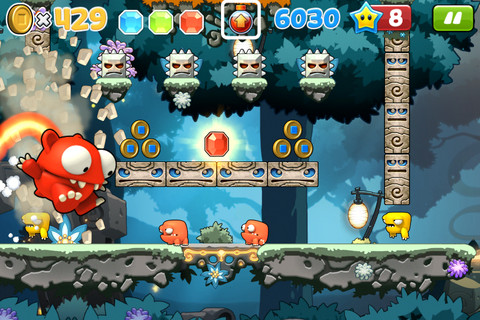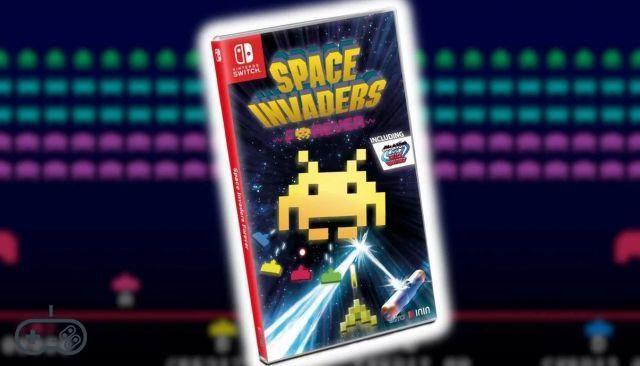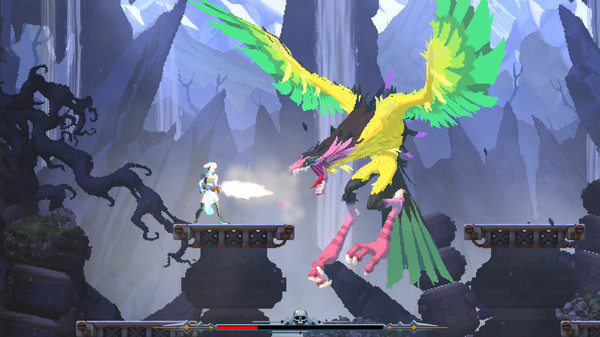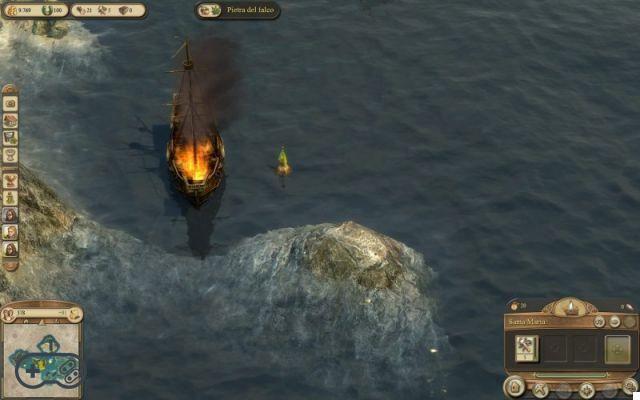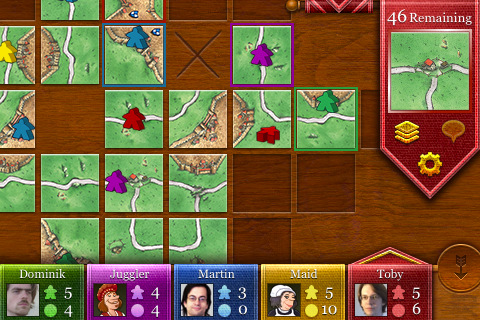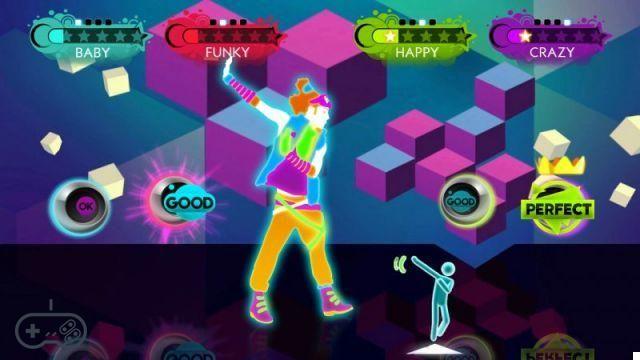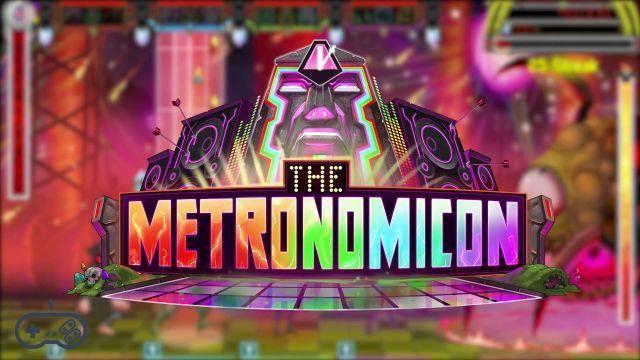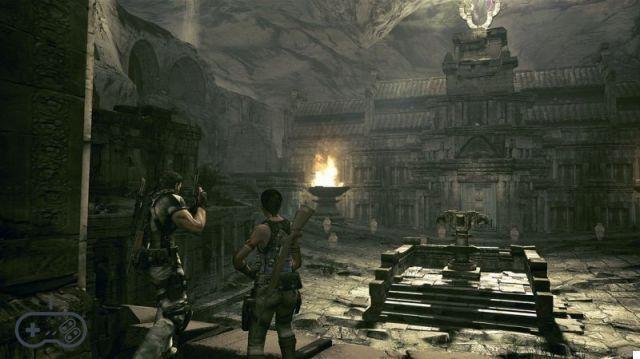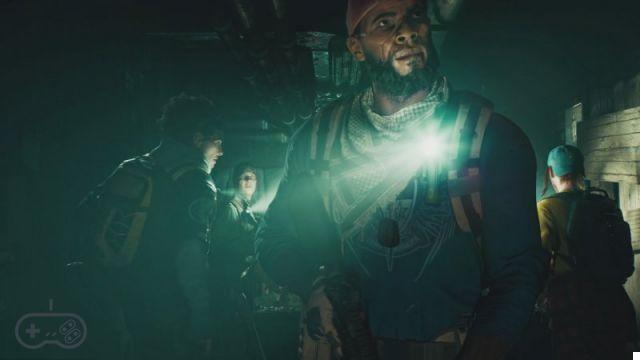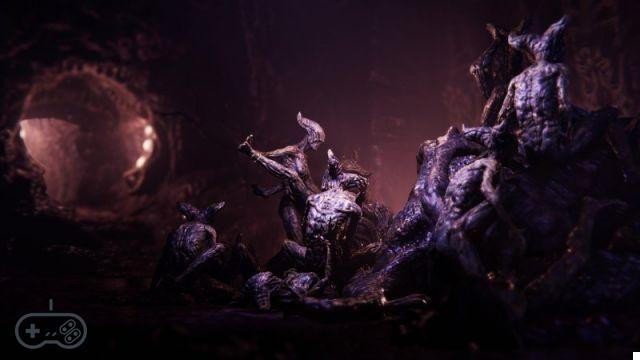After a long wait, here it is Dreams review, the new project Media Molecule coming out of its long beta perfected in every respect. But the new PlayStation exclusive is not the classic video game, it would be an understatement to treat it as such: Dreams is more of a tool, a key, which gives us access to a global creative laboratory like none other. A courageous idea both for those who conceive and develop it, and for the fearless who have to subsidize it by believing in it, just like Sony did with this original dream generator.
Dream
After all, what are video games made of? Certainly of machine language, of many ones and as many zeroes, of human fatigue. Yet, despite the many elements at stake, the most important ingredient of all is the metaphysical one: as we are mainly made of water but our essence is the soul, that of the video game is, net of technicalities, the dream. Video games are made up of human dreams that, thanks to digital care, acquire colors, shapes and gameplay. Who do you want to be today? An unblemished warrior or the most treacherous of pirates, a commander of a spaceship or a soldier at the front, a transport tycoon or a Japanese commander? Choose and you will be satisfied. Do you want to fly in the clouds like a super hero, be Spider-Man and fly around New York, visit places never seen before through virtual reality? No problem my friend, there is definitely the software for you, ready to fulfill your every wish, ready to make your every dream come true.
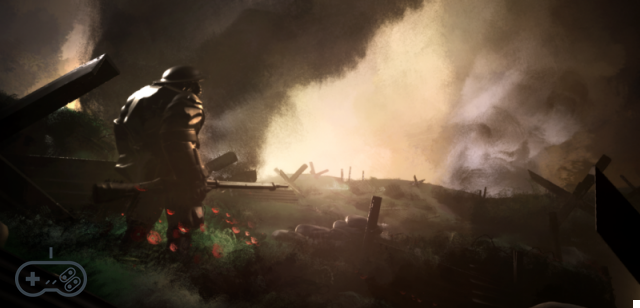
Creative matter
With Dreams, Media Molecule strips the video game of its body to show us the dreamlike magma that bubbles inside, and this is a flow composed of numerous filaments, each associated with different fields of art. Like cinema, more than cinema, videogames contain every artistic form: the polygons are sculpted, the textures are a painting, the music is composed, the direct actors and the gameplay imagined and built. For this reason, while in LittleBigPlanet the video game is almost always the ultimate goal, of those who create and those who limit themselves to enjoying the creations of others, in Dreams it is only one of the possible results of the final calculation. Here everyone is free to use all or only part of this iridescent raw material made available, making it possible to give shape to ideas of all kinds, from video game more complex to the most elementary two-dimensional drawing, to then index each work so that interested parties can find it easily.
You can pull Beethoven's head out of a polygon like a sculptor would out of marble, use a virtual canvas for an impromptu self-portrait, compose a piece of music or create a tyrannosaurus puppet, and all through the powerful yet intuitive tools of Dreams. Media Molecule has practically applied the concept of gamification to art, moreover by building around it an extraordinary free trade platform: each creation can be made available to other users so that it becomes part of the scenario of an artistic installation, as in the case of a particularly well-made backdrop, or the protagonist of an all-round action, and the tyrannosaurus from before would be an excellent candidate. There is also no risk of not being thanked: if the creation of a user within a work of others, Dreams will automatically insert your name / nick in the credits of the same.
But the most interesting thing is being able to form a real one development team, so that several people can work on the same project at the same time, for example a particularly complex video game. After all, few know how to do everything, and given the potential of Dreams it is also legitimate to aim high, at games with such dignity as not to disfigure for sale on the PlayStation Network (Let's not forget that To The Moon is made with RPG Maker!), But for to reach this point it is necessary that there is a group with different specializations.

Step by step
As powerful as it is easy, this is the strong point of this latest work by Media Molecule. Dreams cannot be limited to being the classic as well as boring work environment, otherwise it would be no different from the Unreal Engine or Unity, the classic engines used in the professional field. The strength of Dreams is having found an almost perfect point of contact between ease of use and complexity, and the credit goes to the attempt to simulate every creative impulse so that the execution is as similar as possible to the real one. The Dualshock, and more effectively i PlayStation Move, is thus transformed into a hammer and chisel, into virtual hands capable of giving shape to this sort of magical plasticine that exists only beyond the screen, but with the power of a digital environment that allows you to copy and paste mountains, rotate them and resize them at will. The rest is entrusted to a myriad of menu which will manage the more advanced effects, all accompanied by a pop-up text describing their function.
Of course we will not be left totally to ourselves: to teach us how to work with Dreams, Media Molecule has put together a series of tutorial very fun, refined and enriched during the beta phase, where you learn by immediately putting theory into practice, then in effect playing. But we don't want to deceive you, sometimes finishing the tutorials is not enough: Dreams is easy, very easy, but not so much as to transform a tiller into Shigeru Miyamoto in just one week. As intuitive and layered as they are, in order to access their more complex functions only if necessary, the colorful menus of Dreams require some training to be exploited properly. Furthermore, some of these menus are simpler than others: transforming a parallelepiped into a skyscraper, pulling up the classic house on the hill with the smoking chimney is surprisingly easy, but the same cannot be said of the logic that allows you to build the gameplay, which will require several steps on the same tutorials to be fully understood.

The dream of Art
To give us a concrete idea of what it is possible to do using Dreams, in this final version Media Molecule has added a small but very effective adventure lasting about three hours. The title of the work is The dream of Art, a depressed musician who suddenly decides to leave the jazz band in which he has played all his life. A perfect pretext for a surreal, existential journey, between dreams and reality, for an interactive experience that makes its way into many different genres: at times it will advance like a platform, then as a point and click adventure that does not skimp on moments in which the action is preponderant. The Media Molecule touch is seen in the style graphic, you read in the funny lyrics, you listen to the mammoth soundtrack and above all you play, through dozens of inventions and reinventions. But be careful, Art's dream is absolutely not comparable to the main adventures included in the previous Media Molecule games: the Little Big Planet were in fact sold as a platform with the editor included, at full price among other things, in this case it is Dreams itself the editor, while The Dream of Art represents the high-class optional. Not that you miss to play: everything that has been made by users in this first year spent in beta is still available to anyone who has a copy of Dreams.

Use it however you want
There are currently hundreds of games more or less complete and of every imaginable genre, among these there are also games multiplayer, with global rankings and records to beat. Most are extremely simple, imperfect products, but among this inconclusive bedlam of clones and prototypes there are a lot of gems, to tell the truth they are also quite numerous if we consider that Dreams is officially released only now. Once again we must underline the fact that Dreams is not only this, and that consequently its use changes according to the moment: in this past year in his company, we loaded Dreams as if we were opening the drawer of inks and colors, in full creative swing or to relax seeing our creations come to life, but we also did it for a bit of healthy zapping which in the company of some friends and a bottle has always proved extremely pleasant (jumping between a work and the other requires virtually no loading).
We also gladly come back to check the response to what has been published: there is nothing better than seeing a like or even a positive comment appear under your work. And then there are the contests organized by Media Molecule: every two weeks a theme very specific to work on (at the moment it is "Medieval Dream", the previous one was "Food"). Once a job has been registered for a contest, it can be voted on by other users until the winners are decreed; it should be noted that it is possible to register any type of project, from a musical piece to an animated logo, the important thing is that it is in line with the proposed theme.
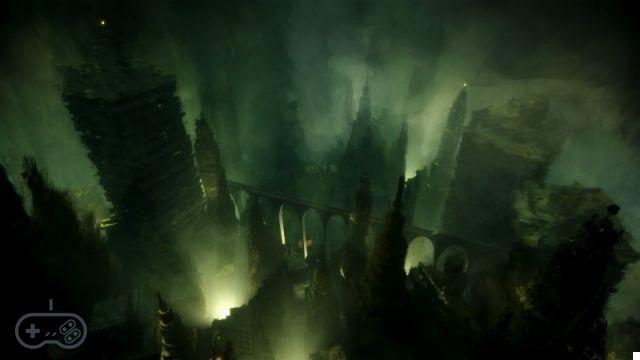
Many, few, none
Compared to the beta, in addition to the addition of The Dream of Art and other small challenges that will allow us to unlock new assets to use in our creations, the final version of Dreams brings with it softer graphics and new and more explanatory tutorials. Also added support for PlayStation Move and Dualshock without the use of motion sensors, for those who get confused using the gyroscope inside the PlayStation pad. Of course using the Moves is totally different from using the pad, but the two different types of controllers are not mutually exclusive, so you can keep them all on and at your fingertips in order to change them on the fly without having to enter a menu. or pause. This is it, and it is by no means little.
The problem, as already mentioned after our first contacts with Dreams, is that in order to convince users to do something truly amazing, then to take full advantage of what this software is capable of, it is necessary to offer them much more than a handful of like, or a first place in a contest with no prizes. Why learn to use Dreams so as not to get anything concrete out of it, when with a little more effort you can learn how to use an engine to put in the curriculum? Also with products like RPG Maker you can distribute your games, hope to make money, while with Dreams this is not (yet) possible. Of course, no one makes it as fun to create as Dreams, but our fear is that the power of this software has surpassed and by as much as the average user is willing to do in exchange for ... nothing. Then it is true that a particularly brilliant work, an author who is constantly selected among the best, could still attract the attention of some software house, perhaps of the same Media Molecule as has already happened along the way during the development of Dreams itself, but it would be however one case among many, and for this same reason those many could become fewer and fewer, until they become few, very few, none.
Comment
Resources4Gaming.com8.5
Readers (69)8.6
Your voteAs a creative tool, Dreams is undoubtedly a masterpiece. Here you will find everything you need to digitally vent your art attacks. Want to test your game design theories? Do you want to make a name for yourself by modeling animals? Want to create the best fantasy soundtrack ever made? With Dreams you can do all this and much more, as long as you find the right motivation.
PRO
- A powerful and intuitive tool
- Zapping between creations is a blast
- Always new creative contests
- Art's dream does not justify the purchase
- Easy ... but not that easy
- Once the inspiration has been found, the motivation must be sought




